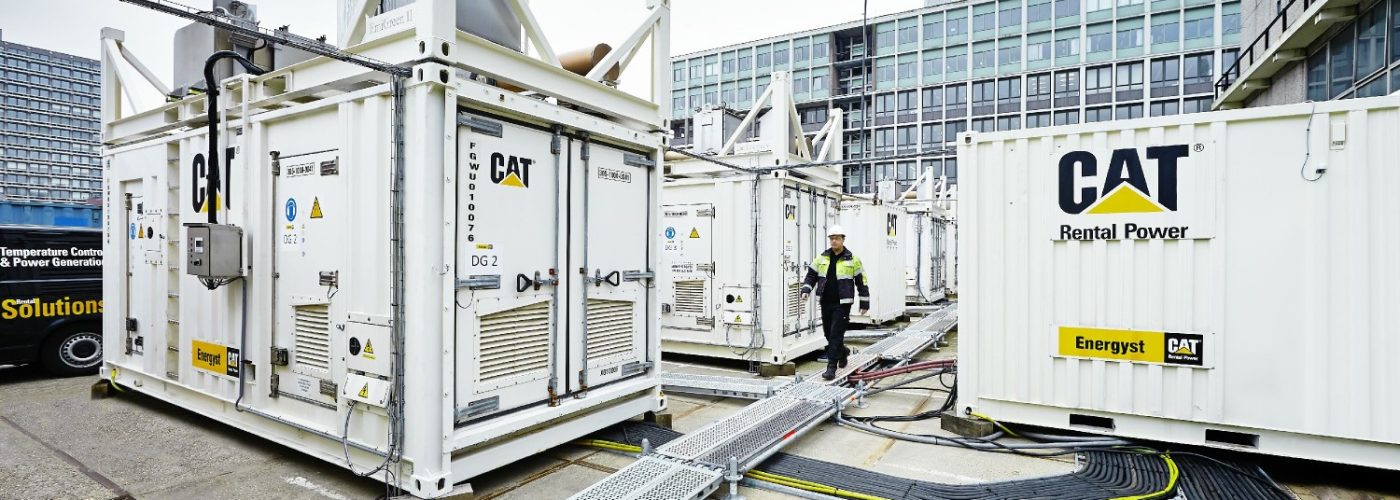Buying a generator set outright is only feasible if a business has the funds to afford the initial investment and is working on a long-term project that requires stable off-grid power. Because in most businesses this is not the case, rental is a compelling option. But not all rental options were made equal. Here Dean Harris, Sales Engineer at Energyst UK & Ireland, explains the difference between short and long-term genset rental.
Renting a genset allows businesses to avoid paying out a large initial sum. One example is a recycling plant, which recently took out a five-year contract because it does not have access to a mains power supply for the foreseeable future. The customer did not want to spend three quarters of a million pounds on the three gensets that it required, so opted for rental to bridge the power gap.
Rental also gives businesses the opportunity to have a genset on site in a matter of days, rather than waiting 16 to 20 weeks for a purchased system to be custom built and installed. Rental customers can also pass the maintenance costs and challenges that come with purchasing onto their supplier.
If a business decides to rent, there are two main options — short-term and long-term rental. Short-term rental can be from a few days to just under a month and long-term rental typically is anywhere up to two years, but some businesses opt for even longer periods of up to ten years.
Short-term rental
Businesses can quickly get their project’s power requirements met by opting for a short-term rental. A rental genset can be quickly introduced to prevent downtime when an existing embedded generator is faulty and needs maintenance work or for projects that only last a few days or weeks.
Consider this example. A company performs five major services each year to check its systems can run up to 2000 kVA, during which the gensets powering the operation must be taken offline. The business could not justify spending half a million pounds on a supplementary genset, only to use it for five or six weeks of the year. Instead, it chose to rent a genset during testing, saving footprint space, the large initial investment and ongoing maintenance costs.
Long-term rental
In addition to the financial benefits of renting a genset, customers can also pass on the operational costs to the rental supplier when renting long-term. The rental supplier can monitor the performance, load and operating hours to see when the genset needs maintenance work, rather than the business carrying this out themselves, providing peace of mind. The renter can also hand over fuel management to the supplier, as well as negotiate a cheaper price per litre when buying in bulk.
Long-term rental can be suitable for standby applications for critical facilities, such as hospitals, airports or data centres. Critical facilities have stringent testing requirements to ensure the equipment kicks in when needed, so leaving this in the hands of experts can save time, money and hassle.
In addition, long-term rental provides flexibility to businesses during times of changing demand. If a manufacturing business wants to extend its production line and increase the power supplied, it can easily swap out the current rental genset for a bigger one or rent an additional system, without investing large sums of money for the expansion.
Ultimately, the value of the rental agreement depends on the project length and the specific requirements of each business. Renting for a longer period will reduce the daily rental rate, but short-term rentals provide more flexibility for businesses who may want a genset for a week. Fully understanding the power requirements of each project before renting a genset will help businesses make an informed decision.
Visit the Energyst website to learn more about our genset rental options https://www.finning.com/Energyst.





